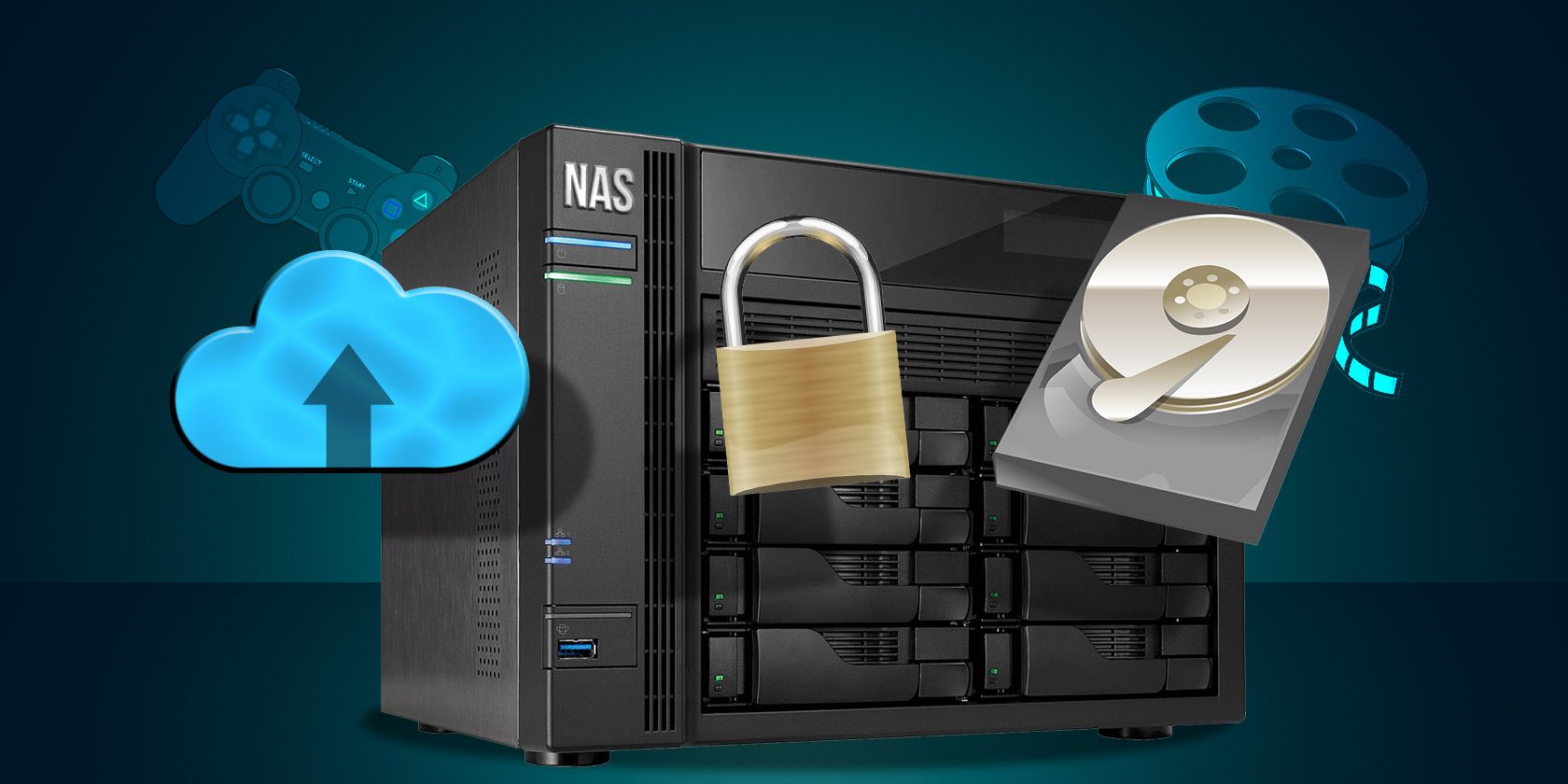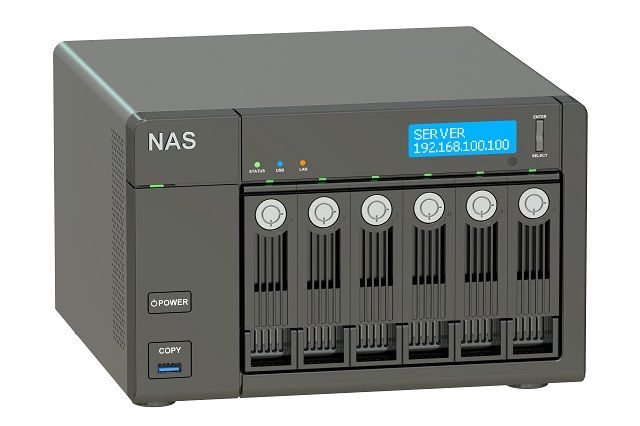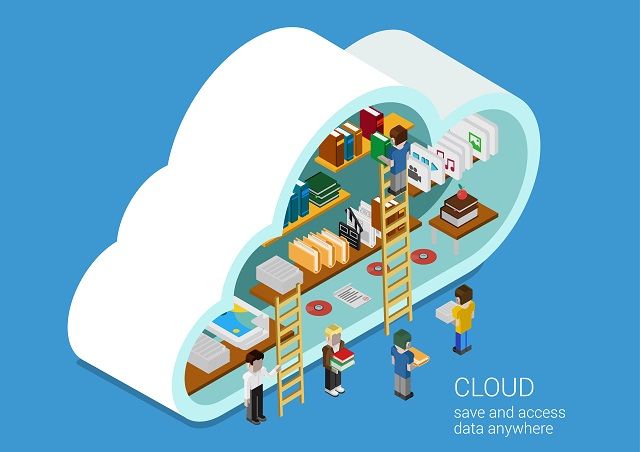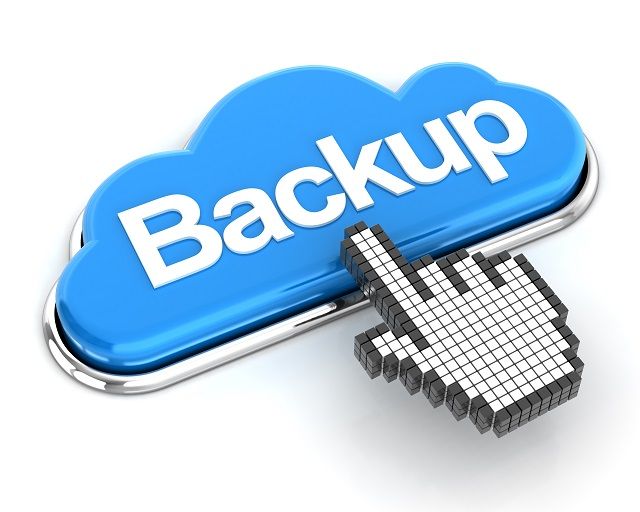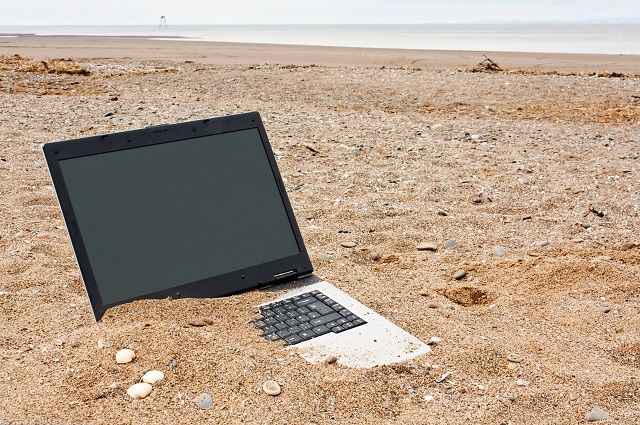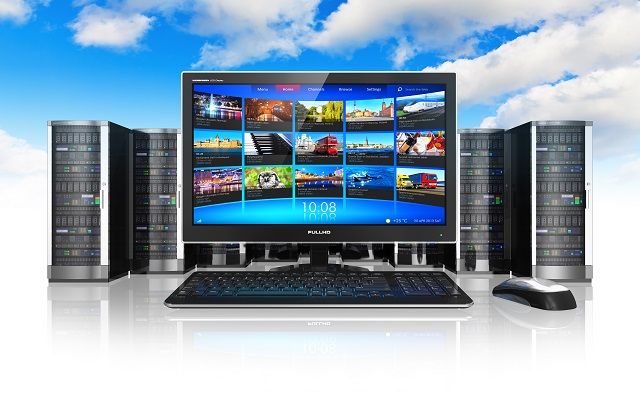Over the past few years, we've moved more and more of our lives into the mysterious realm of "the cloud" -- but what was so wrong with local storage?
I'm not suggesting a return to floppy disks here, but maybe there's a way to get the convenience and benefits of cloud storage without giving it all away to a potentially untrustworthy third-party company.
And it turns out there is. It's called Network Attached Storage (NAS) and there are a handful of reasons why you may want to start using one right this minute.
What Is Network Attached Storage?
Whereas most data storage solutions are either local (i.e. within physical reach, like an external hard drive) or cloud-based (i.e. stored by another company, like Dropbox or Google Drive), a NAS device is like a mix of the two.
In short, NAS devices are hard drives that are connected to a network.
While adding an external hard disk to a PC to increase storage is not a bad option, it can only be connected to and accessed by one PC at a time. On the other hand, a NAS is connected to an entire network, meaning that it can be accessed by any number of PCs as long as they are also on the same network.
Unlike traditional external hard drives, NAS devices generally have some kind of built-in operating system which adds software functions like native media streaming, printer streaming, or remote access. But otherwise, they're functionally similar to any other kind of external hard drive you may have used before.
Cloud-based storage services like Dropbox effectively let you rent space on someone else's network-connected drives, enabling you to access your data from anywhere with an internet connection. A NAS gives you this same functionality without handing your data over to a host company, thus alleviating any concerns about privacy or cost.
A NAS can also protect the data stored on it by being configured to support Redundant Array of Independent Disks (RAID). A RAID setup is essentially two or more hard drives connected together to add extra redundancy (storing data concurrently on all of the drives) and to act as a failover in case one of the hard drives fails.
The Benefits of Using NAS
Now that you know what a NAS device is and how it differs from a regular external hard drive, here's a quick summary of all the benefits you can get from using one.
1. Additional Storage Space
One of the main reasons why people choose to get a NAS device is to add storage space to their local computer. As computers and laptops have shrunk in physical size on the whole, so have their local storage sizes -- especially with widespread adoption of the cloud.
A more cost-effective way of adding storage is to use NAS. Instead of allocating a set amount of space to an individual user, you can pool together the space and only use what you need, thus freeing up more space for more data-hungry users.
While hard drives can range in capacity from a few hundred GB all the way up to around eight TB, you can keep increasing the size of your NAS by attaching additional hard drives instead of upgrading the whole system.
2. Easier Collaboration, Less Mess
Do you remember the days when you used to have to email around a document when you wanted to collaborate on a report or document, leading to hundreds of clone copies of the same document?
A NAS can help cut down on this unnecessary mess by allowing all users to access such documents in one central location and even adding the ability to group edit documents in a similar way to Google Docs or Office 365.
3. Your Own Private Cloud
Cloud storage is incredibly convenient -- that's why so many of us use it. But in the backs of our minds, I'm sure we all have worries about who can truly access our documents, especially for those of us storing confidential information like bank accounts or ID certificates.
What if you wanted the benefits of cloud storage but without any of the potential snooping? This is one area where NAS devices trump cloud storage.
Most NAS devices have software options that allow you to configure remote access (i.e. access from beyond your local network) so that you can get to your documents and files wherever you are in the world. In other words, your own private cloud storage.
If this is one of your main reasons for switching to NAS, then when you are doing your research keep an eye out for NAS devices that also have complementary mobile apps for a full cloud storage experience.
4. Automatic Data Backups
We can't stress enough the importance of backing up your data regularly, but manually backing up your documents can be a hassle. It's easy to get lazy and maybe skip a day, then one day turns into a month, which turns into a year... and then your hard disk crashes and you're left without any recent backups.
Using a NAS you can set up automatic backups which can mirror any changes made locally on the computer. As soon as a change is made to a document or folder, this change can be reflected immediately on the NAS.
If you need even more reassurance that your data is backed up reliably, then you can use the aforementioned NAS RAID setup.
NAS RAID would mean that a change made on a local computer is immediately captured in the NAS backup, which is then copied to multiple hard drives -- multiple backups in case of hard drive failure and with no additional effort on your part.
One of the best things about this is that it can be configured for backups on Mac and on Windows.
5. Reassuring Data Protection
More of us are mobile these days and the risk of dropping or otherwise damaging our laptops is pretty high. Even for desktop computers, there still hasn't been a solution to the classic "spilled a drink, ruined everything" problem.
Rather than isolate data on each individual computer, a NAS server means that you can put the data on a secure network-attached drive that is not affected by local hardware failures.
As NAS devices often have their own OS depending on the device you purchase, it might even offer built-in data encryption, which protects your data from prying eyes outside of your network or unauthorized users (like the NSA).
6. Easy Server Setup
One of the biggest benefits of NAS devices is that they aren't overly complicated to set up and get running. Most of them use a simple web-based interface which allows you to set up the device and access settings.
If you've ever fiddled with the settings of your wireless router, then you'll feel relatively comfortable setting up a personal NAS device. It's really not that hard.
And as if the web-based interface wasn't simple enough, many major NAS manufacturers also provide mobile apps that make the experience even more similar to more traditional cloud storage providers.
7. Make Your Own Media Server
While you can't use Dropbox as a media server, you'll have no problem doing that with a NAS drive. You'll probably find that even some of the more basic NAS devices include some form of media server.
And if interoperability is important for your media streaming, then look out for NAS devices that are DLNA compliant so you can stream content directly to your PS3, smart TV, and other DLNA-compliant devices.
It's Time to Go NAS Right Now
In the tech world, acronyms can be a bit overwhelming and make everything sound more complicated than they are, but you have nothing to fear with NAS devices.
They're easy to set up and use and they come with so many benefits: increased storage space, private cloud storage, streaming music and movies, and even automating backups. Plus, they're often as cheap as purchasing additional hard drives for your local computers.
For bonus points, if you have some spare hard drives laying around and feel like a project, you can try grabbing a Raspberry Pi and make your own NAS box.
Have you felt the call of NAS? What do you use it for? Or do you think local or cloud storage is better? What are your solutions for storing and managing your data? Let us know in the comments below!
Image Credit: stocksolutions via Shutterstock.com, Antonio Guillem via Shutterstock.com, Scanrail1 via Shutterstock.com, ymgerman via Shutterstock.com, AlexLMX via Shutterstock.com, Macrovector via Shutterstock.com, Sentavio via Shutterstock.com, Maxx-Studio via Shutterstock.com

